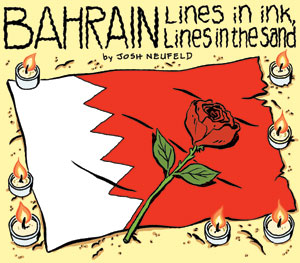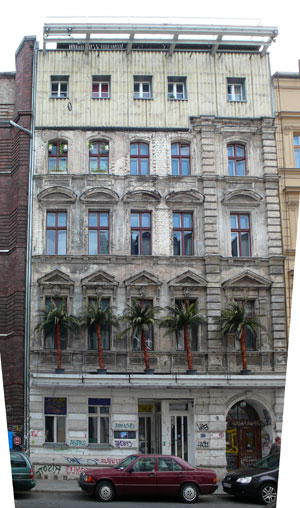I've been watching with some interest the "Jasmine Revolution" in Tunisia (also known as the "Twitter Revolution"), as protesters in that country have successfully overthrown a corrupt, autocratic government. Seeing as how I recently visited a neighboring country in the Maghreb — Algeria — I asked an American friend living there if similar rumblings were being heard where he was. Turns out there have been indeed — as well as protests and "riots" in Middle Eastern countries like Egypt and Lebanon. My friend reports that Algeria went through about a week of rioting, witnessing five dead, 800 injured, and more than 1000 arrests. The Algerians feel great solidarity with the Tunisians, particularly in regard to the autocratic, corrupt nature of their government; and what is happening in Tunisia has sparked optimism that maybe things in Algeria could also change. According to my contact, however, the Algerian police and military were very restrained in dealing with the protests, with many of the injuries actually being suffered by the government forces just trying to restore calm. So that was smart (though obviously painful for the cops).
Reading stories like this — and what's been happening in Cairo recently — is so strange to me, having walked those same, then quiet, streets, just a few short months ago. As with in Burma, I'm reminded that what seems to be a complacent citizenry can rise up quickly against their repressive government when provoked. While I was in the Middle East, I often heard about the infamous "red line," the theoretical line that dissenters could not cross. In Algeria and Egypt, the red line was understood in media circles as being anything directly critical of the military or the ruling family. So it was okay to write about "corruption" or to attack certain government figures, but never go beyond that. Well, it seems in recent days those red lines are being crossed and stamped out.
(I'm also struck by how big a role Facebook and Twitter have played in all this. I can't tell you how many students, artists, and journalists I met during my travels in Egypt, Algeria, Bahrain, and Israel/Palestine who had FB accounts and have since friended me. How could these governments not have foreseen the way these social networks would enable people to work together and plan actions? It's really mind-boggling.) As "my man in Algiers" writes, "What happens next will be critical. If Tunisia has real elections and installs an inclusive, democratic government like they say they will, the rest of the Middle East will really start to shake." My instant association with all this, of course, is 1989 and the fall of the Berlin Wall, followed by the demise of the Soviet Union and its satellites. Such a thing taking place in the countries of the Middle East is incredible to contemplate. I mean, three of the countries I visited last year — Algeria, Egypt, and Bahrain — are all classic oligarchies.
I'm saddened to hear, however, that my own government's pragmatic concerns are taking precedence over this potential explosion of democracy. After all, the U.S. enjoys good relations with the autocratic leaders of both Algeria and Egypt, both of whom assist us in the "war against terrorism." True to form, my friend reports that "some of the latest regional media stories are all about how terrified the U.S. is over the prospect of the Tunisian Revolution spreading throughout the region." He goes on to sarcastically comment, "Yeah, that would really suck for us if all the corrupt dictators were swept out of power and replaced by democratically elected governments…"
I'm certainly no expert, but it seems pretty obvious to me that people living under a fair, representative system would be less inclined to spread fear, terror, and violence — and less likely to target countries like the U.S. that they see as hypocrites when it comes to spreading democracy…







